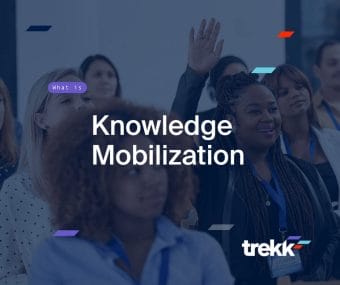
What is Knowledge Mobilization and Why It Matters for Child Health
Knowledge mobilization (KM) is the process of applying research findings and best practices to the real world. It is defined by the Canadian Institute of Health Research as:
“Knowledge mobilization is an umbrella term encompassing a wide range of activities relating to the production and use of research results, including knowledge synthesis, dissemination, transfer, exchange, co-creation, and co-production by researchers and knowledge users.”
In healthcare, it means taking the latest evidence and ensuring it reaches healthcare providers, patients, families, and policymakers. Instead of research staying in academic journals, knowledge mobilization ensures it reaches the people who can use it to improve care.
Why is Knowledge Mobilization Important?
In Canada’s healthcare system, especially in pediatric emergency care, knowledge mobilization is crucial and can help save children’s lives.
Most children in Canada who experience acute illness or injury are first treated in general emergency departments, not in specialized children’s hospitals. This reality means that frontline healthcare providers need rapid access to the best available evidence to provide effective care to child patients.
Without effective knowledge mobilization, valuable research insights risk being underused or misunderstood, leading to variability in care and missed opportunities to improve child health outcomes. Knowledge mobilization bridges the gap between the best available evidence and what healthcare providers do in the emergency department. It helps to ensure that children across Canada, regardless of where they seek care, receive the highest standard of treatment.
How Knowledge Mobilization Improves Child Health Outcomes
KM efforts help to standardize care, reduce unnecessary interventions, and empower healthcare providers and families with credible health information. When evidence-based tools are available to emergency departments, clinicians can quickly reference guidelines, best practices, and decision-making supports tailored to pediatric care. This improves diagnosis accuracy, treatment efficiency, and recovery outcomes.
It also strengthens trust between families and healthcare providers. By making child health information accessible and understandable, families are better equipped to make informed decisions about their child’s care.
How TREKK Supports Knowledge Mobilization
Translating Emergency Knowledge for Kids (TREKK) is a national network committed to improving emergency care for children across Canada. We work alongside healthcare providers, researchers, and families to co-create and share evidence-based resources that bridge critical knowledge gaps.
Here’s how TREKK drives knowledge mobilization:
- Co-Creation of Resources: We collaborate with over 110 experts and leaders in pediatric research to design clinical tools and resources that help healthcare providers and families prepare for pediatric emergencies.
- Evidence Repositories: We curate and maintain collections of trusted, up-to-date research evidence that emergency departments and families can easily access. View our evidence repositories.
- Parent and Families Tools and Videos: We help translate complex medical information into parent-friendly resources, available in multiple languages, ensuring families feel informed and supported. View our pages for parents and families.
- Training and Education: We support the education of healthcare providers through access to evidence summaries, clinical pathways, and point-of-care tools. All of our education sessions are recorded and available on our YouTube channel.
- Commitment to Equity and Sustainability: We engage with rural, remote, and Indigenous communities to ensure that knowledge mobilization efforts reach all children, wherever they are in Canada.
Since 2011, TREKK has co-developed over 198 resources, partnered with more than 220 collaborators, and seen over 538,000 parent video views. Through knowledge mobilization, we empower families, strengthen clinical practice, and strive to ensure that every child in Canada receives the highest standard of emergency care. For more on how TREKK supports knowledge mobilization, see the 2023-2024 Impact Report Highlights or the full 2023-2024 Impact Report.
If you would like to get the latest news and updates from TREKK, sign up for our E-Updates.

